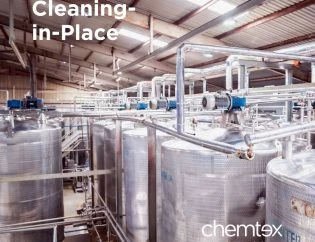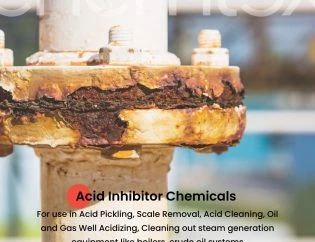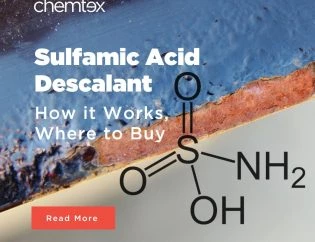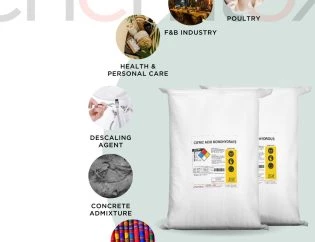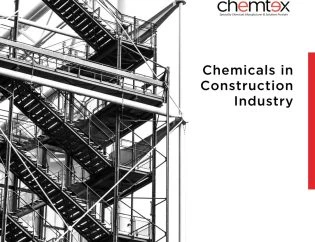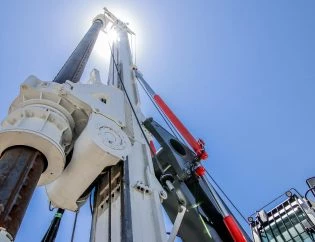
Descaling Chemicals - Impact & A Detailed Analysis
In industries where machines keep things running smoothly, there's a hidden problem: scales. These are deposits that build up inside machines and cause big problems. From boilers to pipelines, different types of scales like calcium sulfate or polymer scales can mess things up. In this article, we're going to explore these scales and why they're such a headache. We'll also talk about how traditional ways of cleaning them up with strong acids can actually make things worse. But don't worry, there's a solution: speciality descaling chemicals. These are designed to get rid of scales without causing any damage.
Types of Scale Formation
Scale formation is a complex process influenced by various factors such as water chemistry, temperature, pressure, and flow rate. In industrial settings, water is often used as a coolant, solvent, or process fluid, making it prone to scale formation when subjected to specific conditions. Let us have a look at some of the types of scales that are formed in common industrial operations.
- Calcium Sulfate Scales, commonly known as gypsum or plaster scales, form when water containing dissolved calcium ions (Ca²⁺) and sulfate ions (SO₄²⁻) is subjected to elevated temperatures or pH changes. As the water evaporates or undergoes chemical reactions, calcium sulfate precipitates out of solution, adhering to surfaces and forming scale deposits.
- Carbonate Scales, predominantly composed of calcium carbonate (CaCO₃) or magnesium carbonate (MgCO₃), form through the reaction between dissolved calcium or magnesium ions and carbonate ions (CO₃²⁻) present in water. Factors such as pH fluctuations, temperature changes, and the presence of dissolved gases like carbon dioxide influence the rate and extent of carbonate scale formation.
- Silica Scales result from the deposition of silicon dioxide (SiO₂) on surfaces exposed to water containing dissolved silica (SiO₄²⁻). Silica scales are particularly problematic in high-temperature applications such as boiler systems, where silica in the water undergoes polymerization and forms tenacious scale deposits on heat transfer surfaces.
- Polymer Scales are formed when organic compounds or polymers present in water undergo precipitation or polymerization reactions under specific conditions. These scales often result from the degradation of organic additives, contaminants, or process chemicals, leading to the formation of sticky or gelatinous deposits on equipment surfaces.
- Resin Scales occur when ion exchange resins used in water treatment processes degrade or disintegrate, releasing resin particles that can accumulate and form scale deposits in equipment and piping systems. Resin scales can impair flow rates, reduce system efficiency, and compromise water quality if not properly addressed.
- Metal Oxide Scales, such as iron oxide (rust), form when metal surfaces corrode in the presence of oxygen and water. Corrosion products, including iron oxides, hydroxides, and sulfides, accumulate on metal surfaces, leading to the formation of thick, adherent scale layers that impair equipment performance and structural integrity.
- Hard Water Scales, primarily composed of calcium and magnesium salts, form when water containing high concentrations of dissolved minerals is subjected to heating or evaporation. As water is heated, dissolved minerals precipitate out of solution and adhere to surfaces, forming hard, insoluble scale deposits.
While traditional acid cleaning methods have been the go-to solution for scale removal, they come with inherent risks. Harsh inorganic acids, such as hydrochloric acid and sulfuric acid, can accelerate metal corrosion, leading to premature equipment failure and costly repairs. The residual effects of acid cleaning may promote flash rusting, exacerbating maintenance challenges and compromising equipment reliability. The indiscriminate use of such acids can also have detrimental effects on the environment and worker safety.
Descaling Chemicals - An alternative to Acid Descaling
To address the limitations of traditional methods, specialized descaling chemicals have emerged as a viable alternative. These formulations are meticulously crafted with inhibited acids, solvents, and high-performance surfactants to dissolve stubborn scales while minimizing the risk of corrosion and flash rusting. Unlike harsh inorganic acids, these chemicals target scale deposits with precision, ensuring thorough removal without compromising the integrity of metal surfaces. Furthermore, these are designed to tackle specific types of scales and can be tailored to suit various industrial applications, including high-temperature environments and hard water conditions. By leveraging the power of chemistry, maintenance engineers and operators can achieve optimal results while minimizing downtime and operational disruptions.
For nearly thirty years, Chemtex Speciality Limited has pioneered the manufacturing of specialized descaling chemicals. Trusted by over 11,000 clients globally, our formulations have earned widespread acclaim for their effectiveness in combating scale buildup, reinforcing our commitment to excellence in industrial maintenance solutions.
For more information, click here

